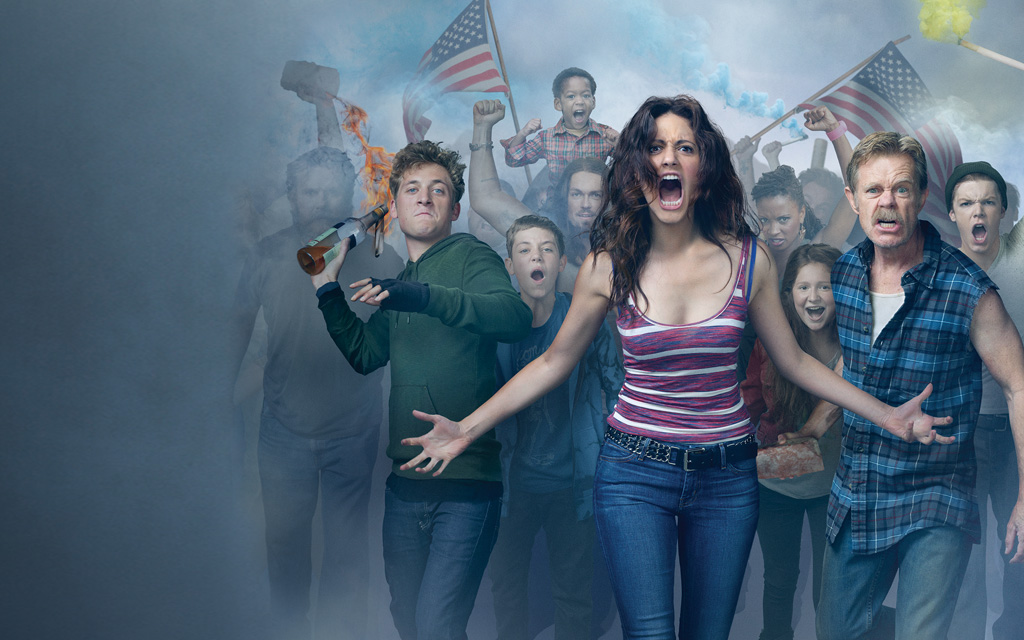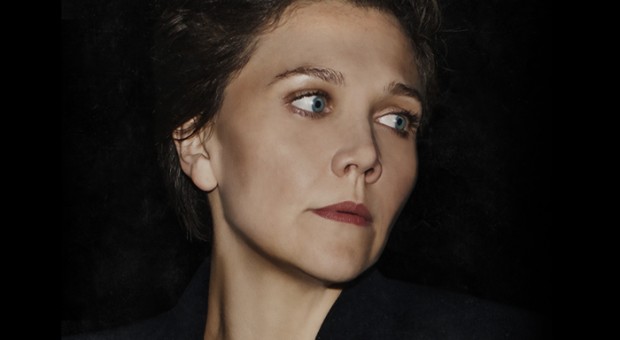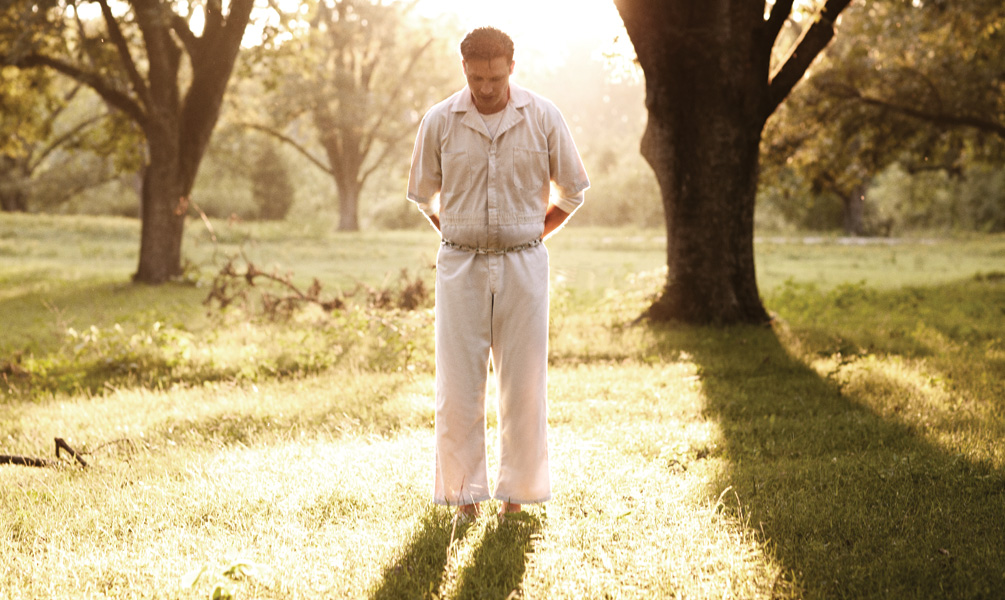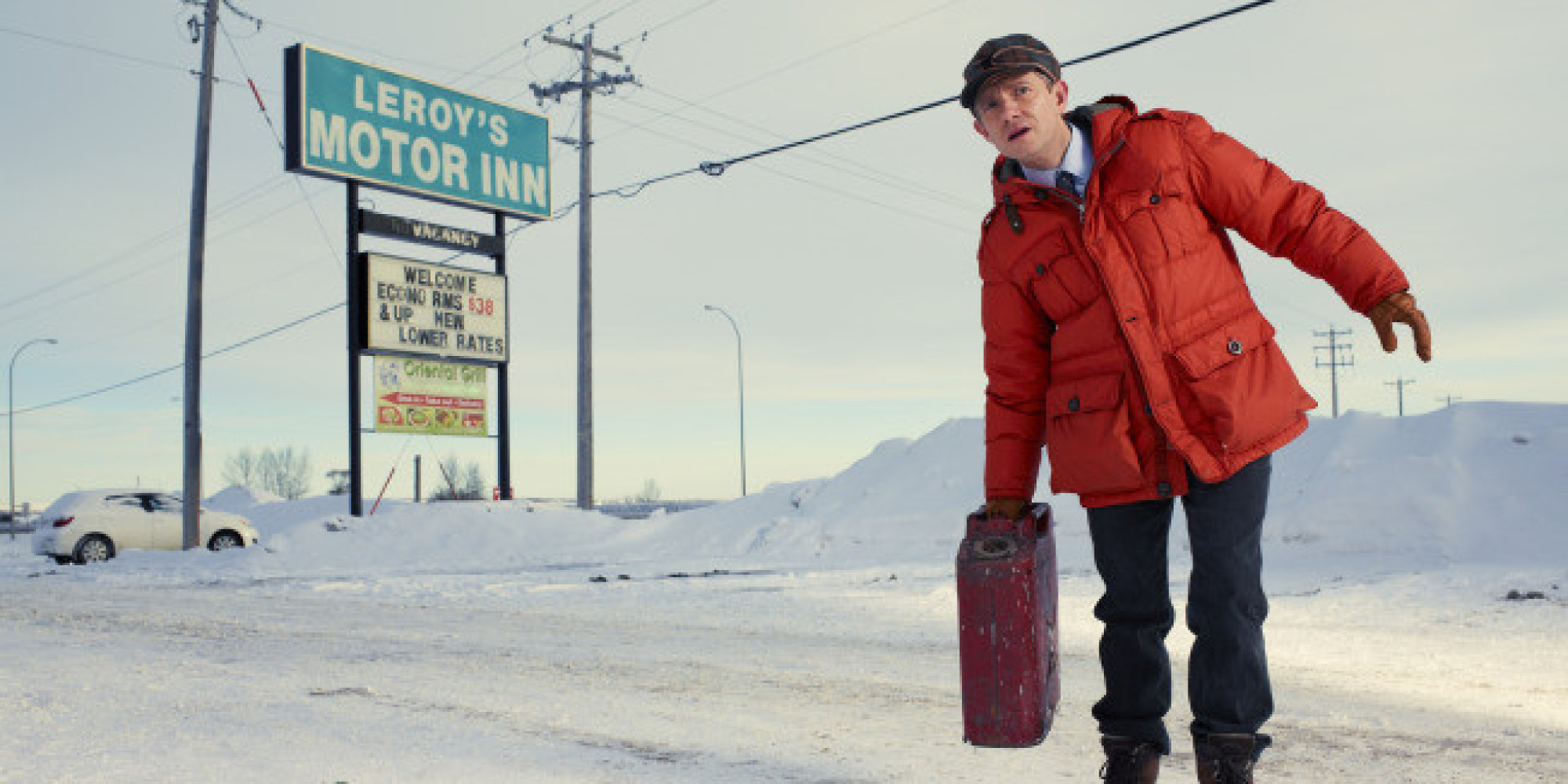Without further ado, here are my Top 10 Programs of 2014:
Last
year, I ranked Orange Is the New Black
higher, and its placement here merely reflects a much stronger year in
television. Jenji Kohan’s big, bold, and beautiful series remains one of the
most humane and important series on the air, offering a brand of
humor both accessible and subversive as it cuts through institutional
corruption with astonishing ease. Threaded through the vindictive Vee’s
(Lorraine Toussaint) (re-)entrance to the prison, Orange’s sophomore run tensely and bravely tackled social grouping,
identifying with keen sensitivity the troubled circumstances under which solidarity
can be formed. And though Vee’s presence brought about profound disruption, the
season’s building focus on older women coming together and battling for control worked as a perfect conveyance of the show’s consummate power to
give voices and agency to the voiceless. Kohan’s innate ability to so richly
and individualistically define dozens of characters shined even brighter in the
second chapter of her groundbreaking narrative. Two cycles in, Orange Is the New Black remains as sexy
as it is raw, and as broadly funny as it is sharply intuitive.
9) Veep – HBO
The
best of 2014’s new sitcoms – You’re the
Worst, Black-ish, Broad City, the late Enlisted – were soft, sweet, gooey
pleasurables, working hard (and succeeding) to sketch out a cast of lovably prickly
characters. But the year’s best sitcom – and really, the best one on the
air right now – is Veep, a cold,
calculating and crass satire whose principal achievement is simply bringing its
audience back every week. There is no West Wing nobility in Veep, nor any blessedly distracting Scandal-like melodrama either: here, depraved, heartless, blatantly-opportunistic
souls work within the confines of an unfortunately-realistic political realm.
Its phenomenally-gifted cast – led by the
ridiculously phenomenally-gifted Julia Louis-Dreyfus – engages in riveting
verbal warfare, hurling the most elaborately and intricately profane insults at
one another with joyful commitment. But there lurks a sneaky depth to this
show, and this season in particular as Selina Meyer’s (Louis-Dreyfus) run for
President mercilessly mocked the exasperation and fallibility that
characterizes our political system. The
season’s peak, “Alicia,” was a blistering foray into representation politics,
at once a cruelly funny and deeply disturbing episode that presented Veep’s cast not as villains, but as hopeless operatives trying to make way in a long-broken system. That’s the relief and
the joy of Veep: all it wants to do
is make you laugh, and yet, it conveys so much more simply because it doesn’t
bullshit you. In today’s climate, that’s a rare and essential quality.
8) Shameless – Showtime
TV’s perennially-underrated Shameless continues to boast the small-screen’s most distinctive and complete worldview, even as its weighty familial questions loom larger by the year. After a series-best fourth season, it’s hard to believe that Shameless occupies such an insignificant portion of the Zeitgeist – it’s a raucously funny and deeply felt account of American poverty, and of a necessarily self-sufficient family of adolescents grinding through the muck and living their day-to-day. What I so love about Shameless is that, no matter its underlying tragedy, this is a series unafraid to have fun – just like its characters, it pushes through bleak banalities and painful realities by doing some gloriously, ridiculously stupid shit. What resonates is the perseverance of its supremely messed-up subjects, contending with the very-real concept of failure as they try not to do as their parents did them. Emmy Rossum’s work as eldest Fiona, the unit’s rock who finally slipped, is devastatingly raw, and Jeremy Allen White’s quietly furious performance as Lip textures Shameless with anger and passion. Developer John Wells’ conception started out loose and freewheeling, and as the series has progressed, its focus on family – on parenting and growing up, on desperately trying to not grow into your mother or your father – has crystallized in focus. Yet even as it has a clearer image of what it’s trying to do, and even as it builds in dramatic potency, Shameless never loses its beautifully drunken spirit.
7) The Honorable Woman – Sundance/BBC
Veep may get more credit than it’s asking for, but Hugo Blick’s massively ambitious The Honorable Woman is an intentionally provocative (and riveting) geopolitical drama. In this case, “drama” implies not merely genre, but a confrontation with the major themes of idealism, loyalty and privilege entrenched in Western approaches to Middle Eastern conflict, synthesized in densely dramatic form. Blick independently writes and directs all eight hours of this limited series, and it’s one of the most substantial individual artistic accomplishments of the year. He’s a visual storyteller, evoking an idiosyncratic template that favors silence and contemplation, but he’s also a deep thinker. Through his protagonist Nessa Stein (Maggie Gyllenhaal), he weaves together a mightily-complicated narrative about one woman, of great means and a haunted past, single-handedly working to bridge an unsolvable conflict. Gyllenhaal’s marvelously contradictory performance is only one highlight in this brilliantly-written thriller; its inquiry into Western values and ideology, the eternal role of the past and the complications of family ties strike a necessary balance, probing vital questions about our world and those with the means and desire to shape it. Few contemporary dramatic works are considering these expansive global topics, and it’s a compliment of the highest order to say that The Honorable Woman not only tackles them, but frames them in an indispensable form, as only great storytelling can.
6) Getting On – HBO
What a special, incisive, bizarre little show. We’re probably not going to get a third season of Getting On, a reality that saddens me greatly even as I accept it. At 12 episodes, this adaptation from Mark V. Olsen and Will Scheffer sits like one of those artworks you feel lucky to have found and experienced. It’s the only piece of TV that would dedicate equal and substantial time to June Squibb (yes, 85 year-old June Squibb) grabbing a stranger’s testicles and stripping naked, and to two women simply sitting together, gently confiding their relationships to loss and to grief. The series’ protagonists range from overwhelmed (Niecy Nash) to incompetent (Alex Borstein) to narcissistic (Laurie Metcalf) – all portrayed with piercing humor and grounding levity – and yet they are all profoundly human, operating in a cutthroat healthcare system and in a ward themed by death and excessively-quick transition. Even so, Getting On is not depressing – it’s life-affirming. Here is the firmest proof that humor is the greatest form of affection. Olsen and Scheffer playfully poke fun at the ward’s elderly residents before inducing tears, as our team of nurses slowly guide these patients to the end of their lives. This show identifies life’s drudgeries, the comedy and unending frustrations inherent within them – and how, in an instant, the natural beauty within them can be realized and digested. Getting On may have been small, but my goodness, was it a moving, hilarious ride.
5) Rectify – Sundance
Ray McKinnon’s glacially-paced, gorgeously-lensed Rectify continues to unfold as a sublime piece of Southern Gothic. In the swampy small community of Paulie, Georgia, mysteries unfurl at levels both impressively consistent and excruciatingly slow; families are embroiled in matters of misdirected love and unshakable loyalties; and Christian faith and philosophical reasoning combine to underpin a general sense of displacement, anxiety and antagonism. The beauty – the power – of Rectify is that it takes its time, literally drifting where the wind blows and allowing characters to dictate direction. There’s an authenticity to McKinnon’s work that’s so palpable and yet so ingrained; characters speak with jarring specificity and distinction, allowing the emotional weight of, say, the simple marital problems between Teddy (Clayne Crawford) and wife Tawney (Adelaide Clemens), or the sheer foreignness experienced by Daniel Holden (Aden Young) as he re-enters Paulie after 20 years on death row, to come down like a ton of bricks. And the acting just blows you away. Young is a ravishing leading man, journeying Daniel through unrelenting isolation and quickening change, and the supporting cast – from Abigail Spencer’s gritty turn as sister Amantha to J. Smith Cameron’s expression of sly intelligence as mother Jane – may be television’s very best. It’s those basic building blocks – investment in character and setting, location of a point-of-view, thoughtfulness in narrative – that, when coupled with such beautifully specific writing and hauntingly powerful performances, allow Rectify to soar.
4) Fargo – FX
A morality tale at once deliciously pulpy and finely-textured, FX’s Fargo strung together a narrative so enthralling that it easily outclassed HBO’s similarly-structured True Detective. This true crime story, written entirely by Noah Hawley and helmed by a collection of veteran small-screen directors, pulled off the impossible: it beautifully evoked and paid homage to the Coen Brothers’ source film, while also emerging as something magnificently original in its own right. The luxury of a dozen hours of material allowed Hawley to play around a bit, from joyous asides with actors playing against-type like Glenn Howerton and Kate Walsh, to a suspense-ridden side-exploration of one man’s reckoning with his sinful past (played terrifically by Oliver Platt). But it was that main idea – where Billy Bob Thornton’s Lorne Malvo presents Martin Freeman’s Lester Nygaard with a free chance to “change his life” – that drove Fargo home. In this juicy exploration of moral capacity, Allison Tolman was a force of good on one end, and Freeman and Thornton were viciously slimy on the other. Fargo quickly erupted as exceptional entertainment, a visually sumptuous Midwestern yarn that hit every beat in story, in dialogue and in character with exacting precision. There’s something to be said for that – Fargo’s base-level ethical inquiry and emotional resonance turned its ride that much more pleasurable and stimulating. Fargo was just great TV, in the purest sense of the phrase.
3) The Americans – FX
The best ongoing dramatic television series around right now – it's an endangered species, what with the end of Breaking Bad, the dips in quality of Homeland and Justified, the conclusion of Mad Men, etc. – echoes many of the greats to make it to air in the past decade. It boasts the stylish period detailing of Mad Men, the tight, slow-burn narrative of Breaking Bad and the big, all-encompassing and subversive “Americanism” that launched The Sopranos into the pantheon. The ideal pairing of sensibilities behind the scenes – Joe Weisberg, a former C.I.A agent bringing firsthand experience, and Joel Fields, a veteran in television writing if there ever was one – renders this chronicling of Reagan-era spy craft immaculately-structured and wholly original. Starring the never-better Keri Russell and Matthew Rhys as a fake husband-and-wife pairing living very real lives as spouses and parents, The Americans’ second season is simultaneously a closely-intimate and unbearably-tense delving into American identity, stringing together a marvelously-crafted narrative while fitting in isolated explorations of parenthood and marriage (all within the confines of its most original and unusual premise). Ultimately, this sophomore run felt like a relic of a time quickly evaporating: here is a continuing story with big themes, an ever-expanding scope and intrigue to spare. Unlike others on this list (or on television, really), The Americans has only gotten started – and that fact, considering its past season was more illuminative and taut than most anything else in the past year, is a really wonderful thing.
2) Transparent – Amazon
What to say that hasn’t already been said? Transparent is at once groundbreaking and familiar, specific and universal, hilarious and sad. Starring Jeffrey Tambor in a definitive and breathtaking performance, this a season of television so naturalistic, fully-realized and emotionally-taxing that every piece of content indicates a near-autobiographical perspective. It's a family story, with the wide-ranging perceptiveness of a Jonathan Franzen novel and the textured characterizations of greats like Six Feet Under. There are details here that simply stun for their specificity and relatability – characters asking for “schmear” at a deli (seriously, what TV show has ever used that word?), or gorging on ribs as a unifying familial activity – while creator Jill Soloway relays a familial history over just five hours with a level of chronological precision and intellectual depth that is nothing short of awe-inspiring. Once the stunning opening credits conclude, there’s a profound ache that underscores this entire production, a painfully funny expression of parental regret and childish adulthood that's personalized like nothing else on television or in films. From Soloway’s raw favoring of the close-up to the richly authentic work put on screen by an exceedingly-talented cast, Transparent is an exercise in intimacy. Its communications are not only understood and contemplated, but are felt, digging bone-deep right to the heart.
1) Olive Kitteridge – HBO
Maybe
it’s its epically humanistic sweep, or its gargantuan performances, or its spectacular
direction – from the moment I saw HBO’s adaptation of the wonderful eponymous Elizabeth
Strout novel, I knew I’d have this ranked number one. Olive Kitteridge is the most emotionally-wrenching viewing experience
of the year. Its narrative is of untenable complexity, presenting the intrinsic
and lifelong flaws of human beings as its centerpiece and its focal point. The
story spans decades, examining with a watchful eye a community changing, residents
growing old, families drifting apart, and love – of a spouse, of family, of life
– conquering all.
This kind of storytelling has been predominantly restricted to literature, as it’s devoid of gimmickry and nudity and violence and just about anything that screams “buy me.” When all is said and done, simply living alongside our prickly titular heroine (Frances McDormand, in a virtuous achievement) as she wrinkles and greys, and waddles and whines, is pure catharsis. It’s a tableau of the human condition and the human heart, of life’s maddening beauty and life’s comforting banalities. The experience of sitting with it for four hours – just observing, for instance, Olive care for her debilitating husband (a marvelous Richard Jenkins) until the day he dies – is so unlike anything else. To be guided through life's transitions, and the ways in which regret can manifest and loving bonds can persevere, is the rarest of treasures.
Cholodenko and her team give us that treasure. A humanist chronicling shaded with soft melancholy and cinematic beauty, Olive Kitteridge is a triumph on every level of storytelling, a work of art as timeless as it is momentous.
That concludes my coverage on the year that was in television. Click here to check out all my past entries, and stay tuned next week as I begin posting about the year in film.
This kind of storytelling has been predominantly restricted to literature, as it’s devoid of gimmickry and nudity and violence and just about anything that screams “buy me.” When all is said and done, simply living alongside our prickly titular heroine (Frances McDormand, in a virtuous achievement) as she wrinkles and greys, and waddles and whines, is pure catharsis. It’s a tableau of the human condition and the human heart, of life’s maddening beauty and life’s comforting banalities. The experience of sitting with it for four hours – just observing, for instance, Olive care for her debilitating husband (a marvelous Richard Jenkins) until the day he dies – is so unlike anything else. To be guided through life's transitions, and the ways in which regret can manifest and loving bonds can persevere, is the rarest of treasures.
Cholodenko and her team give us that treasure. A humanist chronicling shaded with soft melancholy and cinematic beauty, Olive Kitteridge is a triumph on every level of storytelling, a work of art as timeless as it is momentous.
That concludes my coverage on the year that was in television. Click here to check out all my past entries, and stay tuned next week as I begin posting about the year in film.









